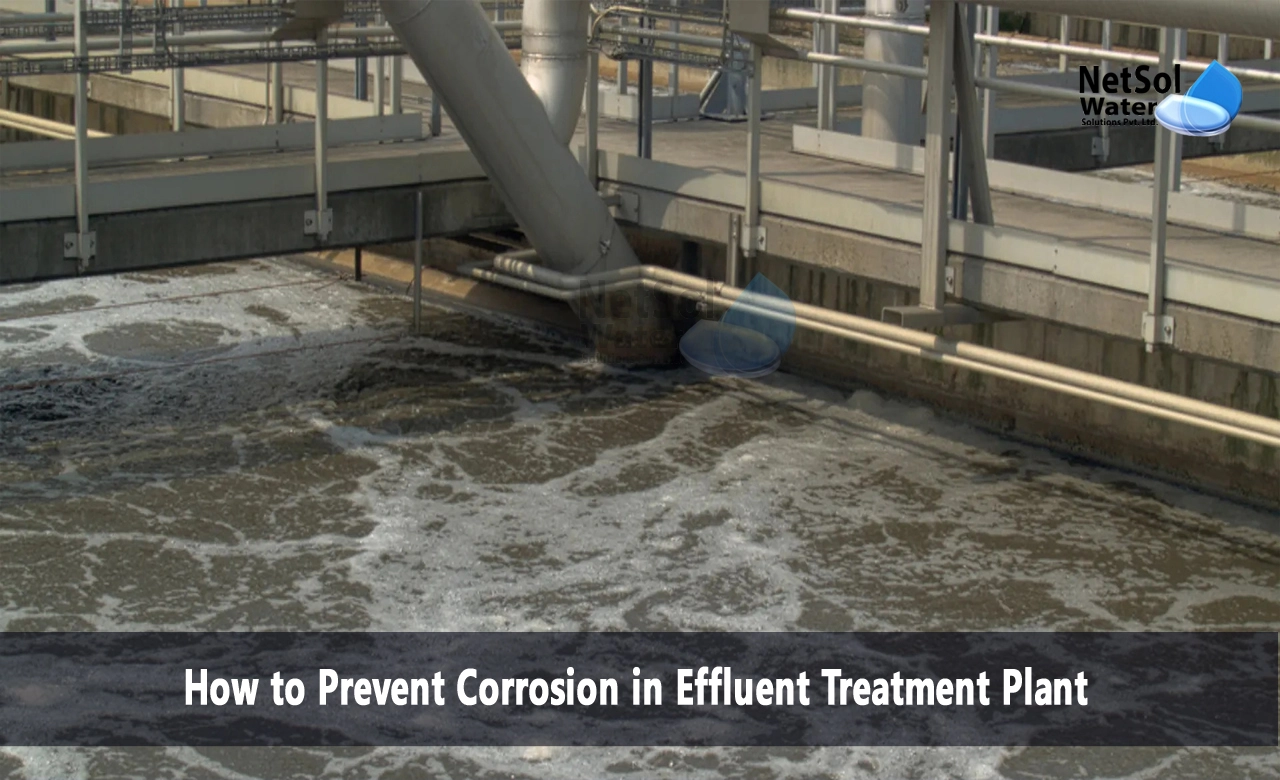How to Prevent Corrosion in Effluent Treatment Plant?
In effluent treatment plants handling industrial and municipal wastewater, corrosion poses a persistent threat to structural integrity, equipment longevity, and safe operations. The complex chemistry of effluent streams combined with biological activity creates highly corrosive conditions for system components fabricated from conventional materials. Implementing rigorous corrosion control protocols through optimised materials selection, cathodic protection, coatings, process adjustments, and comprehensive monitoring is essential. Effective corrosion management in effluent treatment minimises downtime risks, avoids regulatory compliance issues from leaks or failures, and reduces long-term capital and maintenance expenditures.
Effluent Corrosion Mechanisms
Effluent corrosion arises through intricate electrochemical reactions driven by differential aeration, microbiological-influenced corrosion (MIC), stray current, erosion, and chemical attack mechanisms. Common culprits include hydrogen sulfide, ammonia, chlorides, sulfates, dissolved carbon dioxide, bacterial populations, and fluctuating pH conditions. These create uniform/localised corrosion cells, enabling rapid metal dissolution. High total dissolved solids (TDS) concentrations accelerate generalised corrosion rates. Microbiologically influenced corrosion is particularly aggressive beneath surface biofilms insulating anodic/cathodic zones. Erosion-corrosion from high velocities and multi-phase flow regimes also intensifies material loss in piping, pumps, and process vessels.
Corrosion Resistant Material Selection
Identifying compatible metallurgies and selecting appropriate corrosion-resistant alloys (CRAs) is crucial for effluent treatment system components. CRAs are specialised alloys engineered with enhanced elemental compositions, providing superior corrosion resistance compared to conventional stainless steels and carbon steels. High nickel/chromium alloys like Hastelloy resist chloride stress corrosion cracking. Duplex stainless steels with increased chromium and molybdenum provide outstanding pitting/crevice resistance that is beneficial in high chlorides. Fibre-reinforced polymer (FRP) composites offer corrosion immunity and are ideal for chemical storage tanks, ductwork, and structural systems. Non-metallic thermoset resin piping systems are solutions for particularly aggressive streams. Comprehensive coupon studies validate CRA material suitability prior to full-scale implementation.
Cathodic Protection System Design
In scenarios where carbon/low alloy steels are unavoidable for cost or other factors, impressed current cathodic protection (ICCP) renders them corrosion-resistant. ICCP systems apply a sacrificial anode bed connected via an engineered circuit, forcing current to flow between the anodes and the protected structure. The induced current flow suppresses electrochemical metal dissolution reactions on the cathode surface. Rectifiers control current output while galvanic anode beds have slowly been consumed over decades. ICCP continuously monitors and adjusts current to maintain protection potential criteria verifying no metal loss over the infrastructure lifetime.
Advanced Surface Engineering
Even with high alloy metallurgy selection, process stream variability can cause localised corrosion damage. Installing corrosion-resistant coatings, linings, and thermal spray overlays on vulnerable areas provides sacrificial protection barriers, facilitating simpler repair/replacement versus remanufacturing entire capital equipment. Common coatings for effluent service range from polymeric, ceramic, metallic, and reactive composites deposited through liquid spray, hot thermal processes, or electroplating. Specialty nanostructured tribo-coatings create mechanically bonded surfaces offering outstanding adhesion alongside corrosion resistance. Engineered liners insulate effluent piping interiors from chemical attack.
Ongoing Process Monitoring and Adjustments
In-situ effluent monitoring enables proactive corrosion mitigation well before component integrity is compromised. Real-time instrumentation tracks parameters like pH, dissolved oxygen, alkalinity, chloride, sulfate, conductivity, flow rates, etc., in process streams. Data is analysed using water chemistry models predicting corrosion potentials for different metallurgies. Process adjustments like chlorine/sulfide inhibition, scale prevention, deaeration, dosing anti-buffering agents, and optimising flow regimens minimize aggressive conditions. Pilot corrosion racks exposing corrosion coupons in active effluents afford firsthand validation of modelling predictions. Non-destructive testing methods reveal localised damage necessitating repairs.
Netsol Water's Corrosion Resistant Solutions
Netsol Water leverages over 2 decades designing and engineering effluent treatment plants to deliver robust corrosion management strategies. Netsol Water treatment equipment is fabricated from superior alloys and composites following comprehensive modelling studies. Our team also provides on-site corrosion audits, failure analysis and remediation services for existing facilities.
Conclusion
For municipalities and industries, the corrosive nature of effluent treatment exposes operations to significant long-term costs and potential catastrophic risks if not controlled properly. However, instituting a comprehensive corrosion management program encompassing strategic materials selection, supplemental cathodic protection, targeted coating/lining applications, real-time process monitoring and adjustments, and systematic inspection/maintenance empowers effluent treatment plants to remain robust. While initial investments are required, proactive corrosion control ultimately reduces sustaining capital, environmental liabilities, and operational expenditures over an asset's lifecycle. Netsol Water's integrated corrosion-resistant treatment solutions allow customers to implement comprehensive, economical corrosion management tailored to their unique process conditions.
Netsol Water is Greater Noida-based leading water & wastewater treatment plant manufacturer. We are industry's most demanding company based on client review and work quality. We are known as best commercial RO plant manufacturers, industrial RO plant manufacturer, sewage treatment plant manufacturer, Water Softener Plant Manufacturers and effluent treatment plant manufacturers. Apart from this 24x7 customer support is our USP. Call on +91-9650608473, or write us at enquiry@netsolwater.com for any support, inquiry or product-purchase related query.



